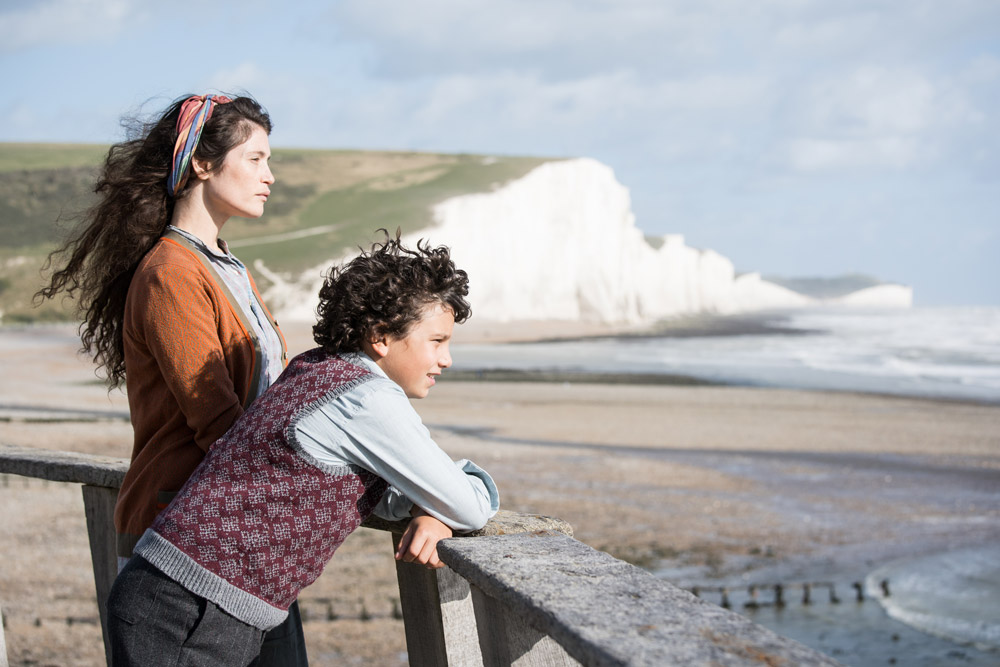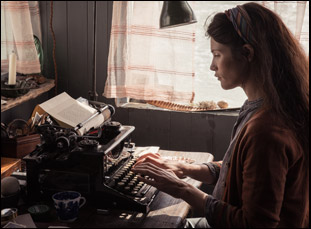“There’s something so delightful in looking at the world through the eyes of a child,” Jessica Swale says in a moment of rumination on her debut feature “Summerland.” “I find that really satisfying and I think lots of my favorite novels have young protagonists because I really enjoy the way we as an audience are allowed to know a little bit more than we do, but also benefit from their innocence.”
“Summerland” isn’t exactly told from a child’s perspective, but it does bear a disarming lack of cynicism in how it envisions a world filled with very adult issues as World War II rages on in the heart of England and a writer named Alice Lamb (Gemma Arterton), who’d rather be left alone, busies herself in the comparatively calm seaside village of Kent. One comes to suspect every day is a battle for Alice, introduced shooing away young boys who come to torment her and seeming far too cantankerous for her age as she stares angrily into her typewriter, making the arrival of the prepubescent Frank (Lucas Bond) as an orphan she’s tasked with taking in for a week until other accommodations can be found seem as if the world’s taken the fight right to her.
Still, the week passes without her being all that eager to kick Frank out the door, and as Alice begins to regale the boy with folk tales for entertainment, she begins to be reminded of a life that might as well be from a storybook when she was involved in an all-too-brief romance when she lived in the city with a woman named Vera (Gugu Mbatha-Raw) — in fact, when they meet, the former suspects the latter of taking her name from the heroine of the Lewis Carroll classic, which Alice is quick to correct when in fact the scientist Alice Evans was the inspiration behind it, an indication of the chemistry to come. Their relationship can’t last at a time when it was considered taboo, but Swale, a gifted playwright who makes a seamless transition to the film, finds a way to show how Alice and Vera’s lost love continues to linger into the present so strongly that even Frank can intuit something’s missing.
The first woman to direct her own work at Shakespeare’s Globe Theater, Swale has become used to breaking through barriers and in making her big screen debut, she uses the full expanse of the medium not only to capture the breathtaking beauty of the scenery, but to place one firmly in another’s experience as Frank and Alice’s perspectives begin to shift for the better after being in each other’s company. With the film now becoming one of the first to bring audiences back to cinemas in the UK while being released virtually elsewhere in the world including America, Swale spoke about preserving her ability to surprise herself on her first feature while continuing her collaboration with Arterton and Mbatha-Raw after the two had previously starred in separate productions of her Olivier Award-winning play “Nell Gwyn,” and how she knew she might’ve had something special on her hands while location scouting.
It was quite an unusual process because I was actually invited to write an original film by BAFTA for their Screenwriting Bursary because I had working in the theater and they were looking to tempt writers that they liked over into writing for film. So even though I’d written a couple of screenplays before which were in the process of getting made because they were adaptations of my theater work, this is the first time I wrote something for the screen as an original piece, and I started literally with a blank piece of paper asking myself what I wanted when I went to the cinema? I kept on thinking cinema is a place where you can show more than real life. We can use our imaginations and expand into all the possibilities of what you can do visually. You can create magic in the cinema, which led me to the theme of magic and folklore and then I started dreaming about the story of somebody who had been interested in folklore.
Magical realism is such a difficult tone to strike when it isn’t exactly fantastical, but slightly heightened. Was it a challenge?
Not really because I suppose it’s slightly about my taste, but I really felt like this story demanded a hint of magic, but not really much more than that because [I wanted] to tell a story about hopefulness and optimism, but within the realms of real life. I thought to myself addressing grief and loneliness and people not being accepted was so important that I didn’t want it to become too fantastical and take away from the reality of the story. What I wanted was to just suggest very simply that if you believed in the possibility of hope and the existence of something perhaps a bit better, whether that’s a place in heaven or simply that you deserve to be able to be out there and open about who you are in your life, that was the story that was essential for me to tell.
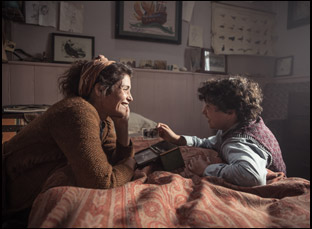
It was just lovely. I thought that we may have to build a set because I had such a strong vision of what the house will look like, I really didn’t think it was likely that we’d find anything which was anything like what I had in my head. The joy of coming across that house and realizing that it always existed, even though I’d never been there before, was a really magical experience and the lady who owned that house doesn’t usually let people film inside it, but when she read the script, she felt so much like this was the house in the movie that she couldn’t possibly say no, so we were very lucky. [laughs]
In another interview, you mentioned that the World War II period didn’t come in until you needed a reason for Frank to stay with Alice – how attached to the times were you?
I don’t like to write with too much of a plan because I feel like the best work happens when you can feel your way through it. I feel like if I plan out too much in advance, it can be reductive — if I could plan this whole story as two or three pages in a treatment, then I don’t think it would ever really surprise the audience. What I need to do as a writer and the bit I really enjoy is getting into the voice of those characters and I do that by writing as them and the more I write, the more I get to know them and the more they can surprise me. The longer I spend with that, that’s where I get to know someone and their personality.
When you worked with Gemma Arterton and Gugu Mbatha-Raw before, did the knowledge of them as actors actually inform their characters?
I actually steered away from doing that. What I did know is they are truly capable, fantastic actresses that could do anything I threw at them, which was exciting and why I cast them. Of course, there’s the advantage we’re friends. Gemma and I became very, very close over the course of doing “Nell Gwynne” because we spent a lot of time together and worked out that we had the same sense of humor and actually Gugu and I have been extremely good friends for all of our adult life because we did our very first job together. So I knew what they could do, but I think there’s a danger in writing or rewriting for an actor because you tend to write what you know they can deliver because you’ve seen them do it before whereas [when you’ve got] exciting and talented actors like both of them are who can do anything, it’s much more exciting both for me and for them if they’re challenged to do something unexpected. I didn’t want to rewrite Alice to fit what Gemma would be naturally suited to play. Part of the appeal for her was playing far off her usual character type.
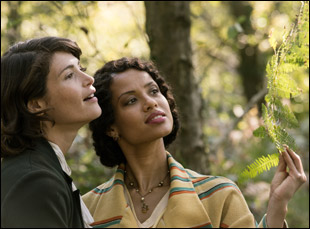
You can never anticipate what it’s going to be because until you’re there and you’re collaborating with the specific team. There’s so many changeable elements whether that’s the weather or how a scene plays out or a little moment that you hadn’t expected to capture. I like to be as spontaneous as possible and to be playful and try to get options so in the edit you can have choices. I’m not a director who has one specific idea of how I want a scene to play out and I make it my mission to shoot that as it was in my head because I think the wonderful thing about working with actors is that you don’t quite know what they’re going to do. Quite often they bring something to the table that you didn’t see in advance or even if it’s a nuance of just how a line plays out, it might have resonance that you didn’t expect, so I like to be receptive to that.
One of the aspects of this I loved so much was how the costumes told a story, particularly with Alice and her coat and how the color green appears throughout. What was it like to figure out that progression?
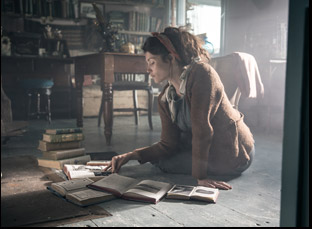
When it’s your first feature, was it what you thought it would be, was it different?
It was the most satisfying thing I’ve ever done. I absolutely loved it and cannot wait to get back on set and make another movie. It’s a steep learning curve, absolutely, and there’s daily challenges, but I’m not one to shy away from that. I get bored easily. I don’t like things to be too easy. I always like to be learning something, so it was a real privilege to work with that team and it was a real pleasure making the movie.
“Summerland” opens at drive-ins and in virtual cinemas on July 31st.




